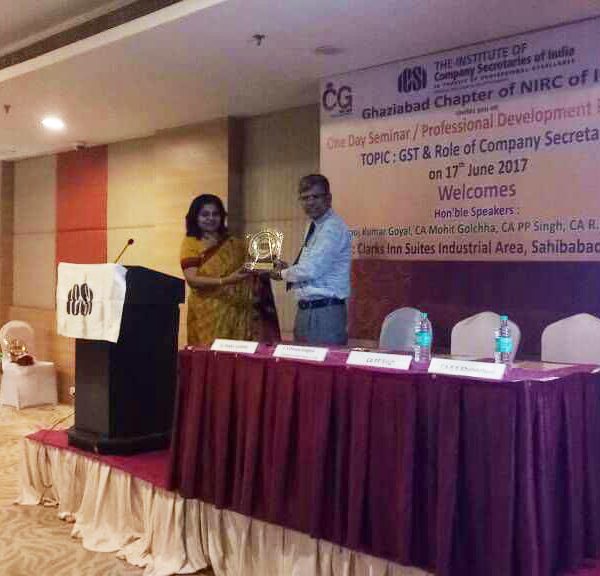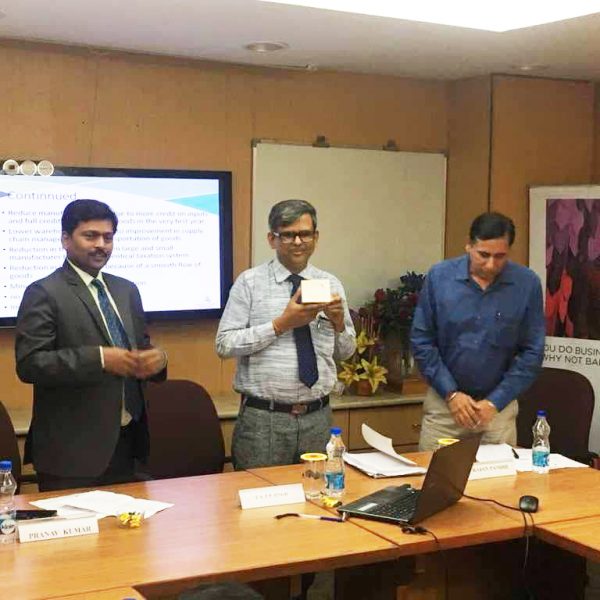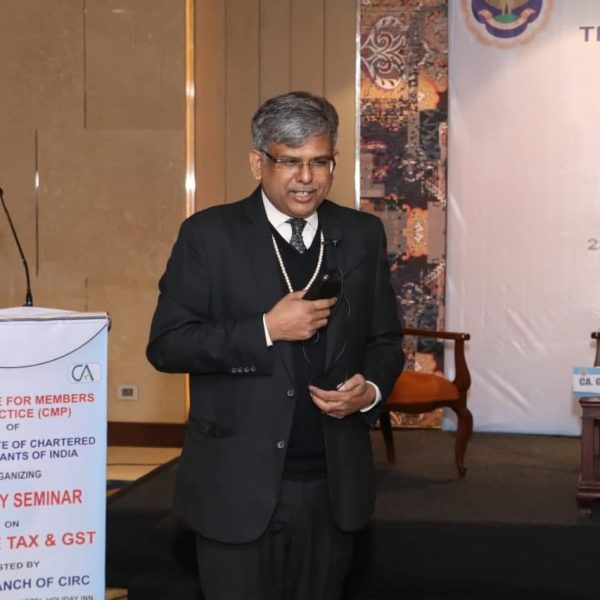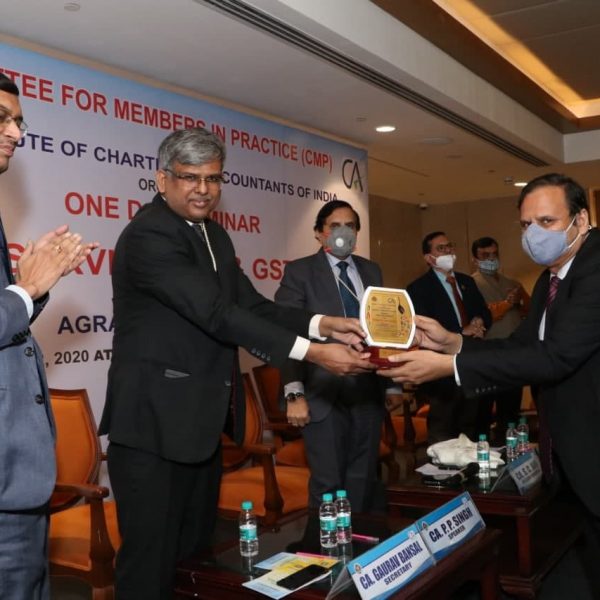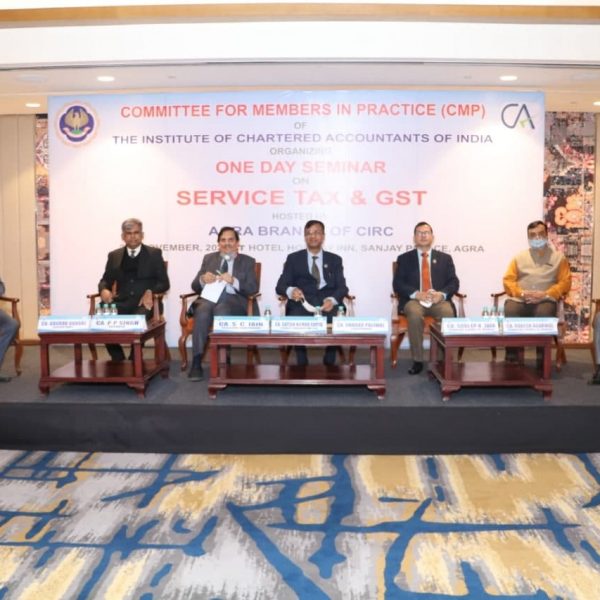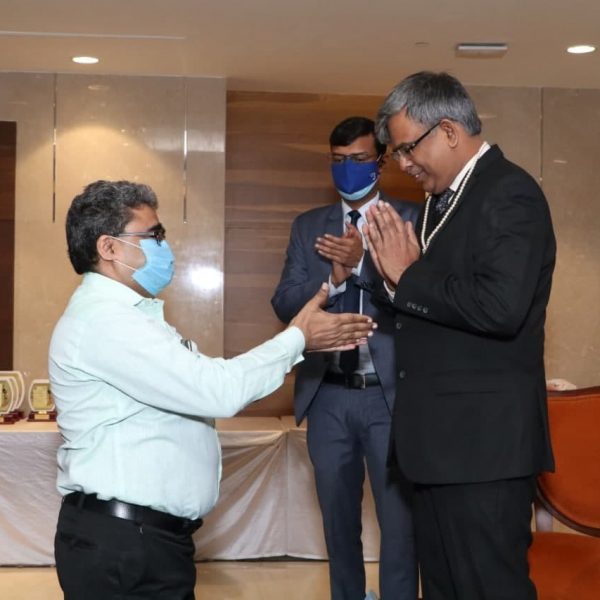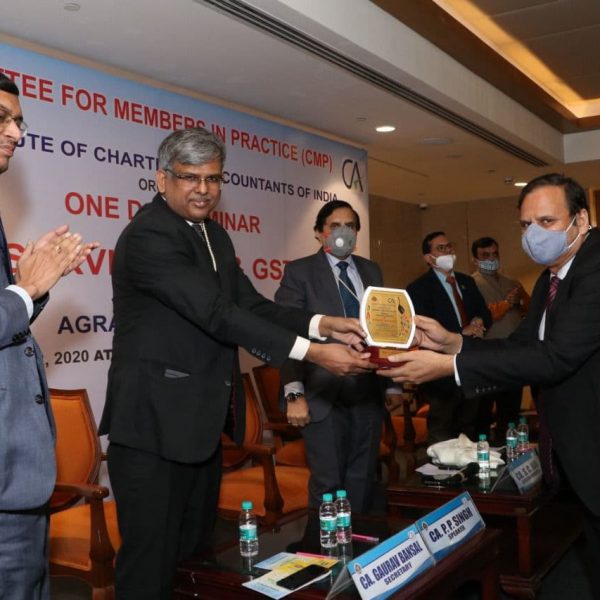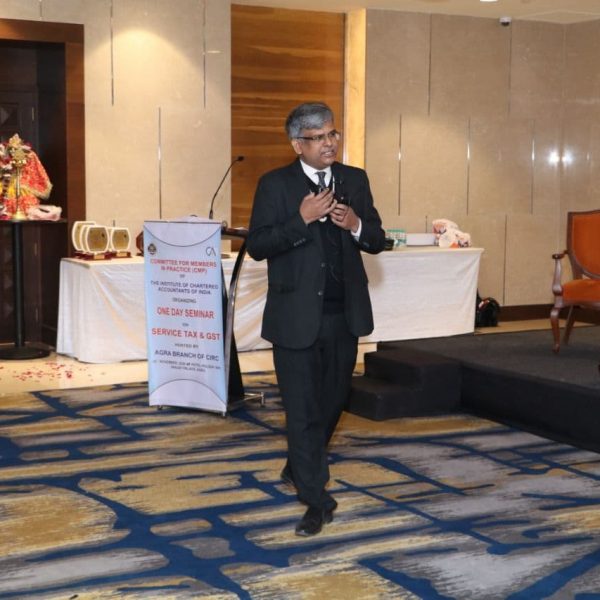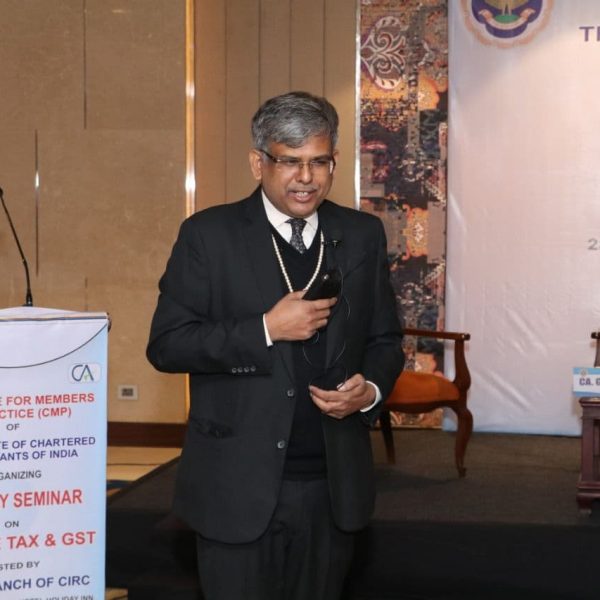Dispute Resolution Committee (DRC) Under Income Tax
Chapter XIX-AA
Section 245MA
Rule 44DAA, DAB, DAC
Form 34BC
E-Dispute Resolution Scheme 2022
Comparative summary of appeal with commissioner/JT commissioner Vs. application with DRC
| Particulars | appeal with CIT(A) | Application with DRC |
| Application fee | Rs. 250-1000 | Rs. 1000 |
| Time limit | 30 days | 1 month |
| condonation of delay | yes | no Provision |
| monetary limit | no upper limit of addition | Proposed addition/ variation of income upto Rs10 lakh,
Return income less than or equal to Rs 50 Lakh. |
| Action | only after the order of AO | application at the stage of draft or after the order of AO. |
| Type of orders against which we can seek relief | Appellable orders u/s246A | order u/s 144C (1)or after getting order VIS 143(1),143 (3),144,154, 171 recording total or Partial, adj in TDS statement U/S 200A /TCS UIS 206 AB
order of TDs default u/s 201/ TDS default under section 206C (6A) order, other appealable orders under section 246A. where the deductor denies liability to deduct tax against an order under section 163 treating the assessee as an agent of non-resident. |
| Immunity | No immunity from Prosecution | immunity from Prosecution also. |
| Time Limit for disposal of appeal/ Application | no time limit strictly | 6 months |
| Power | can enhance assessment also | no enhancement Possible |
| nature of Order | Appellable | not appellable. |
Extract of section 245MA:
(1) The Central Government shall constitute, one or more Dispute Resolution Committees, as may be necessary, in accordance with the rules made under this Act, for dispute resolution in the case of such persons or class of persons, as may be specified by the Board, who may opt for dispute resolution under this Chapter in respect of dispute arising from any variation in the specified order in his case and who fulfills the specified conditions.
(2) The Dispute Resolution Committee, subject to such conditions, as may be prescribed, shall have the powers to reduce or waive any penalty imposable under this Act or grant immunity from prosecution for any offence punishable under this Act in case of a person whose dispute is resolved under this Chapter.
(2A) Notwithstanding anything contained in section 144C, upon receipt of the order of the Dispute Resolution Committee under this section, the Assessing Officer shall,—
| (a) | in a case where the specified order is a draft of the proposed order of assessment under sub-section (1) of section 144C, pass an order of assessment, reassessment or recomputation; or | |
| (b) | in any other case, modify the order of assessment, reassessment or recomputation, |
in conformity with the directions contained in the order of the Dispute Resolution Committee within a period of one month from the end of the month in which such order is received.
(3) The Central Government may make a scheme, by notification in the Official Gazette, for the purposes of dispute resolution under this Chapter, so as to impart greater efficiency, transparency, and accountability by—
| (a) | eliminating the interface between the Dispute Resolution Committee and the assessee in the course of dispute resolution proceedings to the extent technologically feasible; | |
| (b) | optimising utilisation of the resources through economies of scale and functional specialisation; | |
| (c) | Introducing a dispute resolution system with dynamic jurisdiction. |
(4) The Central Government may, for the purposes of giving effect to the scheme made under sub-section (3), by notification in the Official Gazette, direct that any of the provisions of this Act shall not apply or shall apply with such exceptions, modifications and adaptations as may be specified in the said notification:
Provided that no such direction shall be issued after the 31st day of March, 2023:
Provided further that the Central Government may amend any direction, issued under this sub-section on or before the 31st day of March 2023, by notification in the Official Gazette.]
(5) Every notification issued under sub-sections (3) and (4) shall, as soon as may be after the notification is issued, be laid before each House of Parliament.
Explanation.— For the purposes of this section,—
| (a) | “specified conditions” in relation to a person means a person who fulfills the following conditions, namely:— |
| (I) | where he is not a person,— |
| (A) | in respect of whom an order of detention has been made under the provisions of the Conservation of Foreign Exchange and Prevention of Smuggling Activities Act, 1974 (52 of 1974): | |
| Provided that— |
| (i) | such order of detention, being an order to which the provisions of section 9 or section 12A of the said Act do not apply, has been revoked on the report of the Advisory Board under section 8 of the said Act or before the receipt of the report of the Advisory Board; or | |
| (ii) | such order of detention being an order to which the provisions of section 9 of the said Act apply, has not been revoked before the expiry of the time for, or on the basis of, the review under sub-section (3) of section 9, or on the report of the Advisory Board under section 8, read with sub-section (2) of section 9, of the said Act; or | |
| (iii) | such order of detention, being an order to which the provisions of section 12A of the said Act apply, has not been revoked before the expiry of the time for, or on the basis of, the first review under sub-section (3) of the said section, or on the basis of the report of the Advisory Board under section 8, read with sub-section (6) of section 12A, of the said Act; or | |
| (iv) | such order of detention has not been set aside by a court of competent jurisdiction; |
| (B) | in respect of whom prosecution for any offence punishable under the provisions of the Indian Penal Code (45 of 1860), the Unlawful Activities (Prevention) Act, 1967 (37 of 1967), the Narcotic Drugs and Psychotropic Substances Act, 1985 (61 of 1985), the Prohibition of Benami Transactions Act, 1988 (45 of 1988), the Prevention of Corruption Act, 1988 (49 of 1988) or the Prevention of Money-laundering Act, 2002 (15 of 2003) has been instituted and he has been convicted of any offence punishable under any of those Acts; | |
| (C) | in respect of whom prosecution has been initiated by an income-tax authority for any offence punishable under the provisions of this Act or the Indian Penal Code (45 of 1860) or for the purpose of enforcement of any civil liability under any law for the time being in force, or such person has been convicted of any such offence consequent upon the prosecution initiated by an income-tax authority; | |
| (D) | who is notified under section 3 of the Special Court (Trial of Offences Relating to Transactions in Securities) Act, 1992 (27 of 1992); |
| (II) | such other conditions, as may be prescribed. |
| (b) | “specified order” means such order, including draft order, as may be specified by the Board, and,— |
| (i) | aggregate sum of variations proposed or made in such order does not exceed Rs. 10 lakh ; | |
| (ii) | such order is not based on search initiated under section 132 or requisition under section 132A in the case of assessee or any other person or survey under section 133A or information received under an agreement referred to in section 90 or section 90A; | |
| (iii) | where return has been filed by the assessee for the assessment year relevant to such order, total income as per such return does not exceed Rs. 50 lakh . |
Prescribed rules 44DAA, 44DAB,DAC,DAD
Constitution of Dispute Resolution Committee. R- 44DAA.
(1) The Central Government shall constitute a Dispute Resolution Committee(DRC) for every region of Principal Chief Commissioner of Income-tax for dispute resolution, as provided under the Chapter XIX-AA of the Act.
(2) Each Dispute Resolution Committee(DRC) shall consist of three members, as under:-
| (a) | two members shall be retired officers from the Indian Revenue Service (Income-tax), who have held the post of Commissioner of Income-tax or any equivalent or higher post for five years or more; and | |
| (b) | one serving officer not below the rank of Principal Commissioner of Income-tax or Commissioner of Income-tax as specified by the Board. |
(3) The members shall be appointed by the Central Government for a period of three years.
(4) The Central Government may fix a sum to be paid as a fee to a member, who is a retired officer, on a per case basis, along with a sitting fee, so decided by the Board.
(5) The decision of the Dispute Resolution Committee shall be by majority.
(6) The Central Government may, by recording reasons in writing and after giving an opportunity of being heard, remove any member from the Dispute Resolution Committee.]
Application for resolution of dispute before the Dispute Resolution Committee.[ R- 44DAB].
(1) An application to the Dispute Resolution Committee shall be made in Form No. 34BC by the person, who opts for dispute resolution under section 245MA of the Act in respect of dispute arising from any variation in the specified order in his case and who fulfills the specified conditions.
(2) Every application in connection with resolution of dispute shall be accompanied by a fee of Rs1000.
Power to reduce or waive penalty imposable or grant immunity from prosecution or both under the Act. R-44DAC.
(1) The Dispute Resolution Committee shall, upon receipt of intimation as per clause (xix) of sub-paragraph (1) of paragraph 4 of the e-Dispute Resolution Scheme, 2022, and subject to such conditions as it may think fit to impose for the reasons to be recorded in writing, grant to the person who made the application for dispute resolution under section 245MA of the Act, waiver of penalty imposable or immunity from prosecution or both, in respect of the order which is the subject matter of resolution, if it is satisfied that such person has,-
| (i) | paid the tax due on the returned income in full if available; and | |
| (ii) | Co-operated with the Dispute Resolution Committee in the proceedings before it. |
(2) Notwithstanding anything contained in sub-rule (1), no immunity shall be granted by the Dispute Resolution Committee in a case where the proceedings for the prosecution for an offence have been initiated before the date of receipt of the application, as referred to in clause (i) of sub-paragraph (1) of paragraph 4 of the e-Dispute Resolution Scheme, 2022.
(3) An immunity granted to a person under sub-rule (1) shall stand withdrawn if such person fails to comply with any of the conditions subject to which the immunity was granted and thereupon the provisions of the Act shall apply as if such immunity or waiver had never been granted.
Definitions. R-44DAD.
For the purposes of this sub-chapter,-
(i) “Dispute Resolution Committee” means the Dispute Resolution Committee constituted under section 245MA of the Act;
(ii) the “specified order” in relation to a dispute under section 245MA of the Act means:-
| (a) | a draft order as referred to in sub-section (1) of section 144C of the Act; | |
| (b) | an intimation under sub-section (1) of section 143 of the Act or sub-section (1) of section 200A of the Act or sub-section (1) of section 206CB of the Act, where the assessee or the deductor or the collector objects to the adjustments made in the said order; | |
| (c) | an order of assessment or reassessment, except an order passed in pursuance of directions of the Dispute Resolution Panel; | |
| (d) | an order made under section 154 of the Act having the effect of enhancing the assessment or reducing the loss; or | |
| *(e) | an order made under section 201 of the Act or an order made under sub-section (6A) of section 206C of the Act; |
and in respect of which the following conditions are satisfied, namely:-
(A) the aggregate sum of variations proposed or made in such order does not exceed Rs 10 lakh;
(B) the return has been furnished by the assessee for the assessment year relevant to such order and the total income as per such return does not exceed Rs.50 lakh; and
(C) the order in the case of the assessee is not based on,–
| (I) search initiated under section 132 of the Act or requisition made under section 132A of the Act in the case of the assessee or any other person; or | ||
| (II) survey carried out under section 133A of the Act; or | ||
| (III) information received under an agreement referred to in section 90 or 90A of the Act. |
Explanation.- For the purposes of clause (e) of sub-rule (ii), the variation in the specified order relating to default in deduction or collection of tax at source, shall refer to the amount on which tax has not been deducted or collected in accordance with the Act.
(iii) the “specified conditions” in relation to a person who opts for dispute resolution under section 245MA of the Act, means a person in respect of whom:-
| (A) | the conditions mentioned in sub-clause (I) of clause (a) of the Explanation to the section 245MA of the Act are satisfied; | |
| (B) | proceedings under the Black Money (Undisclosed Foreign Income and Assets) and Imposition of Tax Act, 2015 (22 of 2015) have not been initiated for the assessment year for which resolution of dispute is sought. |
(iv) the “specified person” for the purposes of section 245MA of the Act shall be a person who fulfills the specified conditions.
E-DISPUTE RESOLUTION SCHEME, 2022
NOTIFICATION S.O. 1642(E) [NO. 27/2022/F. NO. 370142/5/2022-TPL-PART1(PART1)], DATED 5-4-2022
In exercise of the powers conferred by sub-sections (3) and (4) of section 245MA of the Income-tax Act, 1961 (43 of 1961), the Central Government hereby makes the following Scheme, namely:—
Short title and commencement.
- (1) This Scheme may be called the e-Dispute Resolution Scheme, 2022.
(2) It shall come into force on the date of its publication in the Official Gazette.
Definitions.
- (1) In this Scheme, unless the context otherwise requires, ––
| (a) | “Act” means the Income-tax Act, 1961 (43 of 1961); | |
| (b) | “addressee” shall have the same meaning as assigned to it in clause (b) of sub-section (1) of section 2 of the Information Technology Act, 2000 (21 of 2000); | |
| (c) | “authorised representative” shall have the same meaning as assigned to it in sub-section (2) of section 288 of the Act; | |
| (d) | “computer resource” shall have the same meaning as assigned to it in clause (k) of sub section (1) of section 2 of the Information Technology Act, 2000 (21 of 2000); | |
| (e) | “computer system” shall have the same meaning as assigned to it in clause (l) of sub-section (1) of section 2 of the Information Technology Act, 2000 (21 of 2000); | |
| (f) | “computer resource of the assessee” shall include the assessee’s registered account in the designated portal of the Income-tax Department, the Mobile App linked to the registered mobile number of the assessee, or the registered email address of the assessee with his email service provider; | |
| (g) | “digital signature” shall have the same meaning as assigned to it in clause (p) of sub-section (1) of section 2 of the Information Technology Act, 2000 (21 of 2000); | |
| (h) | “designated portal” means the web portal designated as such by the Principal Director General of Income-tax (Systems) or the Director General of Income-tax (Systems), as the case may be; | |
| (i) | “Dispute Resolution Committee” means the Dispute Resolution Committee constituted in accordance with the provisions of sub-section (1) of section 245MA of the Act read with rule 44DAA of the Income-tax Rules, 1962; | |
| (j) | “electronic record” shall have the same meaning as assigned to it in clause (t) of sub-section (1) of section 2 of the Information Technology Act, 2000 (21 of 2000); | |
| (k) | “email” or “electronic mail” and “electronic mail message” means a message or information created or transmitted or received on a computer, computer system, computer resource or communication device including attachments in text, image, audio, video and any other electronic record, which may be transmitted with the message; | |
| (l) | “modified order” means an order passed by the assessing officer to give effect to the order of resolution of the Dispute Resolution Committee; | |
| (m) | “Official email of the Dispute Resolution Committee” means the email allocated for the purpose of dispute resolution to each Dispute Resolution Committee by the Pr. DGIT (Systems) or DGIT (Systems), as the case may be; | |
| (n) | “registered account” of the assessee means the electronic filing account registered by the assessee in designated portal; | |
| (o) | “registered e-mail address” means the e-mail address at which an electronic communication may be delivered or transmitted to the addressee, including— |
| (i) | the email address available in the electronic filing account of the addressee registered in the designated portal; or | |
| (ii) | the e-mail address available in the last income-tax return furnished by the addressee; or | |
| (iii) | the e-mail address available in the permanent account number database relating to the addressee; or | |
| (iv) | in the case of the addressee being an individual who possesses the Aadhaar number, the e-mail address of the addressee available in the database of Unique Identification Authority of India; or | |
| (v) | in the case of addressee being a company, the e-mail address of the company as available on the official website of Ministry of Corporate Affairs; or | |
| (vi) | any e-mail address made available by the addressee to the income-tax authority or any person authorised by such authority; | |
| (p) | “registered mobile number” of the assessee means the mobile number of the assessee, or his authorised representative, appearing in the user profile of the electronic filing account registered by the assessee in the designated portal; | |
| (q) | “Rules” means the Income-tax Rules, 1962; | |
| (r) | “specified conditions” means the specified conditions referred to in clause (a) of the Explanation to section 245MA of the Act; | |
| (s) | “specified order” means the specified order referred to in clause (b) of the Explanation to section 245MA of the Act; | |
| (t) | “video conferencing or video telephony” means the technological solutions for the reception and transmission of audio-video signals by users at different locations, for communication between people in real-time. |
(2) Words and expressions used herein and not defined but defined in the Act shall have the meaning respectively assigned to them in the Act.
Scope of the Scheme.
- The dispute resolution under this Scheme shall be made by the Dispute Resolution Committee on applications made for dispute resolution under Chapter XIX-AA of the Act in respect of dispute arising from any variation in the specified order by such persons or class of persons, as may be specified by the Board.
Procedure in dispute resolution.
- (1) The application for dispute resolution, as referred to in paragraph 3, shall be dealt with in the following manner, namely:—
Application for dispute resolution
| (i) | the assessee who fulfills the specified conditions may, in respect of any specified order, file an application electronically for dispute resolution to the Dispute Resolution Committee designated for the region of Principal Chief Commissioner of Income-tax having jurisdiction over the assessee; | |
| (ii) | the application shall be filed in the Form No. 34BC referred to in rule 44DAB: |
| (a) | within such time from the date of constitution of the Dispute Resolution Committee, as may be specified by the Board, for cases where appeal has already been filed and is pending before the Commissioner (Appeals); or | |
| (b) | within one month from the date of receipt of specified order, in any other case; |
| (iii) | the application shall be submitted by email to the official email of the Dispute Resolution Committee along with proof of payment of tax on the returned income, if available and accompany a fee of one thousand rupees as mentioned in sub-rule (2) of rule 44DAB. | |
| Screening of application | ||
| (iv) | the Dispute Resolution Committee shall examine the application with respect to the specified conditions and criteria for specified order; | |
| (v) | upon such examination the Dispute Resolution Committee, where it considers that the application for dispute resolution should be rejected, shall serve a notice calling upon the assessee to show cause as to why his application should not be rejected, specifying a date and time for filing a response; | |
| (vi) | the Dispute Resolution Committee shall, on a request by the assessee, provide him an opportunity of being heard through video telephony or video conferencing facility, to the extent technologically feasible; | |
| (vii) | the assessee shall furnish a response to the show-cause notice referred to in clause (v) within the specified date and time or such extended time as may be allowed on the basis of application made in this behalf, to the Dispute Resolution Committee; | |
| (viii) | the Dispute Resolution Committee may, after considering the response furnished by the assessee in clause (vii), reject the application or proceed to decide the application on merits in accordance with the procedure laid out in clauses (ix) to (xiv) and where no such response is furnished reject the application; | |
| (ix) | the decision of the Dispute Resolution Committee that the application for dispute resolution should be allowed to be proceeded with or rejected, shall be communicated to the assessee on his registered e-mail address; | |
| (x) | the assessee shall, within thirty days of receipt of the communication that the application is admitted as referred to in clause (ix), be required to submit a proof of withdrawal of appeal filed under section 246A of the Act or withdrawal of application before the Dispute Resolution panel, if any, to the Dispute Resolution Committee or convey that there is no aforesaid proceeding pending in his case, failing which the Dispute Resolution Committee may reject the application. | |
| Procedure to be followed by Dispute Resolution Committee | ||
| (xi) | the Dispute Resolution Committee may, upon admission of the application, as referred to in clause (ix), and subsequent to the receipt of the response of the assessee in clause (x), call for records from the income-tax authority and further examine, as it may deem fit, with respect to the issues covered in the application; | |
| (xii) | the Dispute Resolution Committee may seek a report from the assessing officer on the issues covered in the application or on any other issue arising during the course of proceedings; | |
| (xiii) | the Dispute Resolution Committee may before disposing off the application, call for further information from the assessee or any other person by sending an email to his registered email address; | |
| (xiv) | the assessee shall electronically submit its response to the Dispute Resolution Committee, within the time specified or such time as may be extended by the Dispute Resolution Committee on the basis of an application in this behalf; | |
| (xv) | the Dispute Resolution Committee may, after considering the material available on record, including any further information or evidence received from the assessee, income-tax authority or any other person, may decide — |
| (a) | to make modifications to the variations in specified order, which are not prejudicial to the interest of the assessee, and decide for waiver of penalty and immunity from prosecution in accordance with the provisions of rule 44DAC, and pass an order of resolution accordingly; or | |
| (b) | to not make modifications to the variations in the specified order, but however may decide for waiver of penalty and immunity from prosecution provisions in accordance with the provisions of rule 44DAC, and pass an order of resolution accordingly, which shall be treated as an order not prejudicial to the interest of the assessee; or | |
| (c) | to not make any modification to the specified order, and pass an order disposing off the application, which shall be treated as an order ‘not prejudicial to the interest of the assessee, | |
| within six months from the end of the month in which the application for dispute resolution is admitted by the Dispute Resolution Committee as per clause (viii); |
| (xvi) | the Dispute Resolution Committee shall serve a copy of the order of resolution or order disposing off the application, as the case may be, upon the assessee and also the assessing officer for giving effect to the same, if so required; | |
| (xvii) | where the specified order is an order of the eligible assessee as referred to in sub-section (1) of section 144C of the Act, the assessee shall not be eligible to file any reference to the Dispute Resolution Panel or an appeal to the Commissioner (Appeals) against the modified order; | |
| (xviii) | the assessing officer shall serve a copy of the modified order along with notice of demand upon the assessee specifying a date for making payment of demand; | |
| (xix) | the assessee shall, furnish proof of payment of the said demand to the Dispute Resolution Committee and also to the assessing officer; | |
| (xx) | the Dispute Resolution Committee shall, on receipt of confirmation of payment of demand, by an order in writing, grant immunity from prosecution and waiver of penalty if applicable, in accordance with the provisions of rule 44DAC. |
(2) The order of the Dispute Resolution Committee for the resolution of a dispute shall be in accordance with the provisions of the Act.
(3) Notwithstanding anything contained in sub-paragraph (1), the Dispute Resolution Committee may at any stage of the dispute resolution proceedings, if considered necessary, for reasons to be recorded in writing and after giving an opportunity of being heard to the assessee, decide to terminate the dispute resolution proceedings if,—
| (i) | the assessee fails to cooperate during the course of dispute resolution proceedings; or | |
| (ii) | the assessee fails to respond to, or submit any information in response to, a notice issued to him; or | |
| (iii) | the Committee is satisfied that the assessee has concealed any particular material to the proceedings or had given false evidence. | |
| (iv) | the assessee fails to pay the demand as required in clause (xviii) of sub-paragraph (1) of paragraph 4. |
(4) Where the dispute resolution proceedings are terminated as per sub-paragraph (3), the Dispute Resolution Committee shall intimate the income-tax authority for taking necessary action as per the provisions of the Act.
(5) Where the application has not been allowed to be proceeded with as referred to in clause (viii) of sub- paragraph (1) of paragraph 4, the assessee may file an appeal to the Commissioner (Appeals) and the period taken by the Dispute Resolution Committee in deciding on the admission shall be excluded from the period available to file such appeal.
Powers of the Dispute Resolution Committee.
- (1) The Dispute Resolution Committee shall have the power to waive penalty or grant immunity from the prosecution provisions of the Act on fulfillment of conditions specified in rule 44DAC.
(2) Any proceedings before the Dispute Resolution Committee shall be deemed to be a judicial proceeding within the meaning of sections 193 and 228 and for the purposes of section 196 of the Indian Penal Code (45 of 1860) and every income-tax authority shall be deemed to be a Civil Court for the purposes of section 195, but not for the purposes of Chapter XXVI of the Code of Criminal Procedure, 1973 (2 of 1974).
(3) If any difficulty arises in giving effect to any order of the Dispute Resolution Committee, it may, on its own motion or on an application made by the assessee or the assessing officer through the Principal Commissioner of Income-tax or the Commissioner of Income-tax, as the case may be, remove the difficulty insofar as it is not inconsistent with the provisions of the Act.
Waiver of penalty imposable and Immunity from prosecution.
- The Dispute Resolution Committee shall, upon receipt of proof of payment as per clause (xix) of sub-paragraph (1) of paragraph 4, grant to the person who made the application for dispute resolution under section 245MA of the Act, waiver of penalty imposable or immunity from prosecution or both under this Act in accordance with the rule 44DAC.
Appeal or revision.
- No appeal or revision shall lie against the modified order.
Authorisation to be filed.
- An authorised representative appearing for the assessee at the hearing shall electronically file, before the commencement of the hearing, a document authorising him to appear for the assessee and if he is a relative of the assessee, the document shall state the nature of his relationship with the assessee, or if he is a person regularly employed by the assessee the capacity in which he is at the time employed.
Exchange of communication exclusively by electronic mode.
- For the purposes of this Scheme, —
| (a) | all communications between the Dispute Resolution Committee and the assessee or the authorised representative of the assessee or any other person, as the case may be, shall be exchanged exclusively by electronic mode, to the extent technologically feasible; and | |
| (b) | all internal communications between the Dispute Resolution Committee, or any income-tax authority shall be exchanged exclusively by electronic mode. |
Authentication of electronic record.
- For the purposes of this Scheme, an electronic record shall be authenticated by the––
| (i) | Dispute Resolution Committee, the Principal Commissioner of Income-tax or Commissioner of Income-tax, as the case may be, by affixing its digital signature; | |
| (ii) | assessee or any other person, by affixing his digital signature if he is required under the Rules to furnish his return of income under digital signature, and in any other case by communicating through his registered email address. |
Delivery of electronic record.
- (1) Every notice or order or any other electronic communication under this Scheme shall be delivered to the addressee, being the assessee or any other person, by way of—
| (a) | placing an authenticated copy thereof in the assessee’s or any other person’s registered account, as the case may be; or | |
| (b) | sending an authenticated copy thereof to the registered email address of the assessee or any other person, as the case may be, or his authorised representative. |
(2) Every notice or order or any other electronic communication under this Scheme shall be delivered to the addressee, being any other person, by sending an authenticated copy thereof to the registered email address of such person, followed by a real time alert.
(3) The assessee or any other person, as the case may be, shall furnish his response to any notice or order or any other electronic communication, under this Scheme, through his registered account, to the official email of the Dispute Resolution Committee and once an acknowledgment is sent by the Dispute Resolution Committee, the response shall be deemed to be authenticated.
(4) The time and place of dispatch and receipt of electronic record shall be determined in accordance with the provisions of section 13 of the Information Technology Act, 2000 (21 of 2000).
No personal appearance before the Dispute Resolution Committee.
- (1) A person shall not be required to appear either personally or through authorised representative in connection with any proceedings under this Scheme before the Dispute Resolution Committee or income-tax authority.
(2) The assessee or any other person, as the case may be, or his authorised representative, may request for a personal hearing so as to make his oral submissions or present his case before the Dispute Resolution Committee.
(3) The Dispute Resolution Committee may approve the request for personal hearing, as referred to in sub-paragraph (2).
(4) Where the request for personal hearing has been approved by the Dispute Resolution Committee, such hearing shall be conducted through video conferencing, including use of any telecommunication application software which supports video telephony, to the extent technologically feasible, in accordance with the procedure laid down by the Board.
(5) The Board shall establish suitable facilities for video conferencing including telecommunication application software which supports video telephony at such locations as may be necessary, so as to ensure that the assessee, or his authorised representative, or any other person is not denied the benefit of this Scheme merely on the ground that such assessee or his authorised representative, or any other person does not have access to video conferencing at his end.
Proceedings not open to the public.
- The proceedings before the Dispute Resolution Committee shall not be open to the public and no person (other than the assessee, his employee, the concerned officers of the Dispute Resolution Committee or the income-tax authority or the authorised representatives) shall, without the permission of the Dispute Resolution Committee, remain present during such proceedings, even on video conferencing or video telephony.
Language of the Dispute Resolution Committee.
- (1) The language of the Dispute Resolution Committee shall be Hindi or English, at the option of the assessee.
(2) Where any document is in a language other than English or Hindi, an English translation thereof should also be furnished along therewith.
(3) The resolution order and any other order passed by the Dispute Resolution Committee may, at the discretion of the Dispute Resolution Committee, be in Hindi or English.
Power to specify format, mode, procedure and processes.
- The Principal Director General of Income-tax (Systems) or Director General of Income-tax (Systems), as the case may be, shall, in consultation with the jurisdictional Principal Chief Commissioner of Income-tax or the Principal Director General of Income-tax, in charge of the Dispute Resolution Committee and with the approval of the Board, lay down the standards, procedures and processes for effective functioning of the Dispute Resolution Committees under this Scheme, in an automated and mechanised environment, including format, mode, procedure and processes in respect of the following, namely: —
| (i) | service of the order or any other communication; | |
| (ii) | receipt of any information or documents from the person in response to the notice, order or any other communication; | |
| (iii) | issue of official email-id to the Dispute Resolution Committee; | |
| (iv) | issue of acknowledgment of the response furnished by the person; | |
| (v) | provision of “e-proceedings” facility including login account facility, tracking status of dispute resolution proceedings, display of relevant details, and facility of download if so required; | |
| (vi) | accessing, verification and authentication of information and response including documents submitted during the dispute resolution proceedings; | |
| (vii) | receipt, storage and retrieval of information or documents in a centralised manner; and | |
| (viii) | general administration and grievance redressal mechanism in the respective Dispute Resolution Committees. |
SHEFALI SINGH, Under Secy. Tax Policy & Legislation

